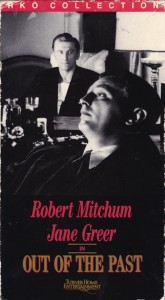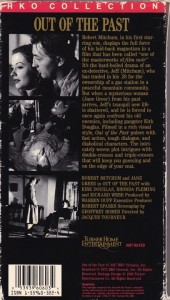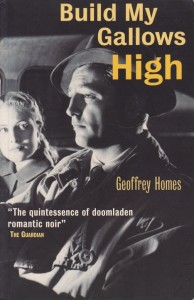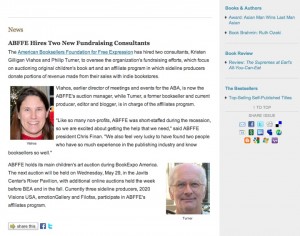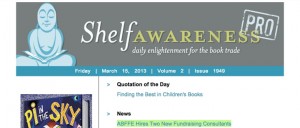Open Culture–Great Site for Free Film Noir
Thx to @openculture my wife&I saw a good film last nite-1949’s ‘Impact’ w/Brian Donlevy. 100s more free #FilmNoir at bit.ly/15dQmtq
— Philip Turner (@philipsturner) March 17, 2013
One of my favorite films is “Out of the Past,” the 1947 classic with Robert Mitchum, Jane Greer, Kirk Douglas, and Rhonda Fleming. I’ve watched it many times, and enjoy it so much that when I re-view it now the scenes seem to unfold like movements in a symphony. Because I love it do much, I’m always on the lookout for other noir-ish standouts. If you don’t know “Out of the Past,” please see the visuals below, the box on my old VHS copy of the movie, and the jacket of the pseudonymous Geoffrey Homes’ book, Build My Gallows High, which he adapted in to the screenplay, under his real name Daniel Mainwaring. Given my fondness for film noir, and crime and detective fiction, I was recently delighted to discover that OpenCulture.com, which describes itself as “The best free cultural and educational media on the web,” has assembled a site with access and links to 475 movies, many noir flicks, all free of charge to watch.
As indicated in the tweet above, Kyle and I saw a good one last night, chosen almost at random from among Open Culture’s offerings. Set in San Francisco, Brian Donlevy plays a husband who survives a murderous attack on him by his adulterous wife’s lover. Minutes later, the attacker is himself killed, and Donlevy, who had first been assumed dead, later surfaces alive, only to be accused of murder. It’s filled with surprises and twists, and excellent performances–from the avuncular Charles Coburn as a police detective with an Irish brogue and Ella Raines, a beauty we had never seen on screen before, as Donlevy’s love interest, counterpoint to his vindictive wife. The sound and picture quality were excellent. It’s clear we’re going to be working our way through Open Culture’s vast collection.
* If, like me, you’re big fan of Robert Mitchum, I must also recommend Lee Server’s galvanic biography, Robert Mitchum: “Baby, I Don’t Care” (the subtitle is a line from “Out of the Past”).
